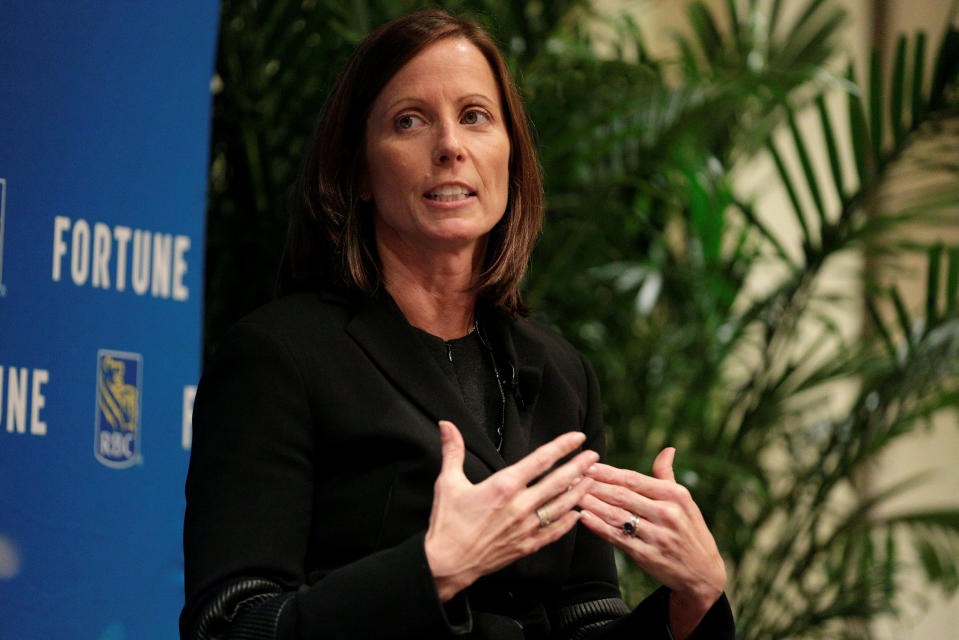Nasdaq CEO: Startups are putting off IPOs for 2 major reasons
Private companies with sky-high valuations are waiting a long time to go public. And it’s because there isn’t the same urgency to file for an IPO anymore.
Susan Lyne, founder and managing partner of BBG Ventures, which is backed by AOL, said companies traditionally go public for two reasons — to please impatient investors or to raise more capital.
“There’s so much new money that’s come into the market. So there’s plenty of capital out there to stay private, especially when that capital is willing to buy secondary stock,” she said at Yahoo Finance’s All Markets Summit on Wednesday.

Nasdaq CEO Adena Friedman also noted at the All Markets Summit that though the number of Nasdaq IPOs has gone up since last year, the overall trend of staying private makes logical sense.
“Companies are staying private longer for two reasons: increased access to capital and complex public markets,” Friedman.
The urge to stay private
Take, for instance, Pinterest CEO Ben Silbermann, who cited the headaches of quarterly reporting and the pitfalls of being held captive to public shareholders as reasons why he intends to stay private for as long as possible.
“We’ve been fortunate enough to have investors who are willing to go with us on this journey. We didn’t want to take on the overhead at this moment of being a public company since we have the capital and runway to do it,” he said.
Citing Softbank’s $100 billion Vision Fund, sovereign funds and mutual funds all eager to invest in startups, Lyne said there’s very little incentive for highly funded companies to make their public debuts.
She said one specific set of startups, in particular, are the most likely to stay private for the next few years — the companies that have very high growth and are still not profitable.
Public investors aren’t nearly as generous as private investors who are banking much more heavily on a leader’s long-term vision — not short-term results.
Melody Hahm is a writer at Yahoo Finance, covering entrepreneurship, technology and real estate. Follow her on Twitter @melodyhahm.
Read more:
